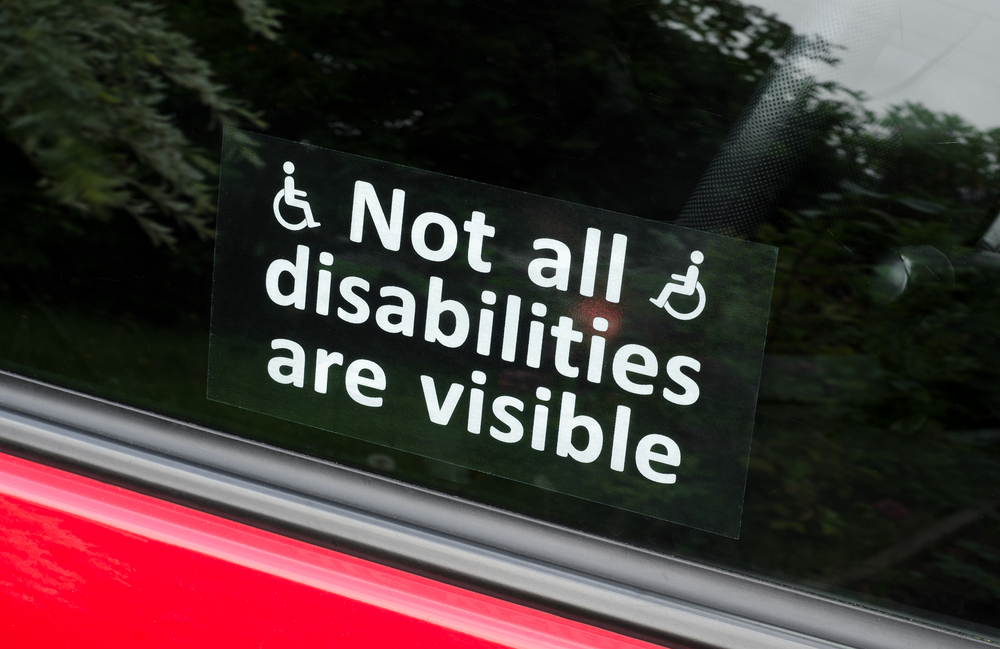
Your Rights Under Disability Discrimination Laws
Understanding Your Protections as a California Employee
Facing Disability Discrimination
Living with a disability can bring daily challenges, especially when it affects your job. If you believe you’re experiencing discrimination at work in California, you’re not alone. State and federal laws offer strong protections. Understanding your rights is the first step toward a safer, more inclusive workplace. If you need help, Attain Law attorneys are here to support you.
California has some of the nation’s strongest employment protections for people with disabilities. These laws apply to a wide range of employment law matters, such as hiring, firing, promotions, and workplace accommodations. If you’re unsure whether your experience qualifies as discrimination, learning about the basics can help you decide on your next steps. You can also read about different types of workplace discrimination for more information.
What Counts as Disability?
A disability under California law is any physical or mental impairment that limits a major life activity, like walking, seeing, learning, or working. The definition is broad and includes chronic illnesses, mental health conditions, and temporary injuries. The Fair Employment and Housing Act (FEHA) covers more conditions than federal law, so even if you’re not protected under the Americans with Disabilities Act (ADA), you may still be protected in California.
Common examples include:
- Diabetes, epilepsy, HIV/AIDS, cancer
- Depression, anxiety, PTSD
- Learning disabilities, ADHD
- Mobility impairments, loss of limb
- Temporary injuries lasting more than a few months
Key State and Federal Laws
California’s FEHA is the main state law protecting workers with disabilities. It applies to employers with five or more employees, offering broader coverage than the ADA, which covers employers with 15 or more. Both laws prohibit discrimination in:
- Hiring and firing decisions
- Promotions and pay
- Job assignments
- Access to training
- Workplace policies and benefits
FEHA also covers perceived disabilities or a history of disability. Even if you’re not currently disabled, if your employer treats you as if you are, you’re protected.
Reasonable Accommodations Explained
Employers must provide reasonable accommodations so you can perform your job unless it would cause significant difficulty or expense (“undue hardship”). Accommodations can be simple or complex, such as:
- Modified work schedules
- Accessible workspaces or equipment
- Job restructuring
- Extended leave for treatment or recovery
- Remote work or flexible hours
If you need an accommodation, you must let your employer know. The law requires an “interactive process”—a good-faith discussion about your needs and possible solutions.
Common Signs of Discrimination
Disability discrimination can look different from case to case. You might notice:
- Refusal to hire or promote you because of your condition
- Harassment or offensive comments about your disability
- Denial of reasonable accommodations
- Unfair discipline or termination after disclosing your disability
- Retaliation for reporting discrimination or requesting accommodations
If you’re unsure, explore common violations of disability rights in the workplace for more details.
Employer Obligations
California employers must:
- Engage in the interactive process when you ask for an accommodation
- Maintain confidentiality about your medical information
- Avoid making employment decisions based on stereotypes or assumptions
- Prevent and address harassment related to disability
- Avoid retaliation for asserting your rights
Employers are not required to hire or keep employees who cannot perform essential job functions, even with accommodation, but they must explore all reasonable options first.
Steps to Take If You Experience Discrimination
If you suspect disability discrimination, consider these steps:
- Document everything: Keep notes, emails, and any written communication with your employer.
- Request accommodations in writing: Be clear about what you need and when you asked.
- Report concerns: Use your company’s HR process or file a written complaint.
- Contact the California Civil Rights Department (CRD): File a complaint within three years of the discrimination.
- Consult an attorney: Legal advice can help you navigate complex situations. You can also learn about how to request reasonable accommodations at work.
Know Your Damages
California law allows you to recover damages if you win a disability discrimination claim. Potential compensation includes:
- Back pay for lost wages and benefits
- Reinstatement to your job (if appropriate)
- Out-of-pocket costs
- Compensation for emotional distress
- Punitive damages in severe cases
- Attorney’s fees and costs
For more on damages, see our section on common damages in wrongful termination lawsuits.
Related Protections and Claims
You may have other claims if you’ve faced retaliation, harassment, or wrongful termination due to your disability. Learn more about retaliation claims, hostile work environment, and wrongful termination. Each matter type has unique requirements and deadlines.
Frequently Asked Questions about Disability Discrimination Rights
What disabilities are protected under California law? California law protects a wide range of physical and mental conditions that limit major life activities, including chronic illnesses, mental health conditions, and temporary injuries.
How do I request a workplace accommodation? You should notify your employer in writing about your need for an accommodation. Employers must start an interactive process to identify reasonable solutions.
Can my employer fire me for having a disability? Employers may not terminate you because of a disability if you can perform your job duties with or without a reasonable accommodation. However, if you cannot perform essential functions, even with accommodations, termination may be lawful.
What is the deadline to file a discrimination complaint in California? You generally have three years from the date of the alleged discrimination to file a complaint with the California Civil Rights Department (CRD).
Are mental health conditions covered by disability laws? Yes. Conditions like depression, anxiety, PTSD, and other mental or psychological disorders are protected under California law if they limit a major life activity.
We’re Here to Support You
Overcoming disability discrimination can feel overwhelming, but you don’t have to do it alone. Attain Law is committed to helping California employees understand and enforce their rights. If you’re facing challenges at work or have questions about your options, contact us today for a free consultation or call (888) 970-8627. We’re here to support you every step of the way.
Disclaimer: This is an advertisement. The information provided is for general purposes only and is not legal advice. Consult a qualified attorney for your specific case. Attain Law cannot guarantee outcomes, as results vary by situation.
Browse Other Articles for "Disability Rights" in California:
Start Your FREE Consultation
Complete the form for a Free Consultation. No upfront fees, swift action, and we’re only paid when we succeed for you.
Why Choose Attain Law?
- No Upfront Costs
- We operate on a contingency fee basis—you pay nothing unless we win your case.
- Personalized Attention
- Every case is unique. We tailor our strategies to fit your specific situation.
- Proven Track Record
- Our firm has successfully recovered millions for our clients.
- Statewide Representation
- Based in Woodland Hills, we serve clients throughout California.
Justice Is One Step Away
Ready to turn your struggle into strength? At Attain Law, we’re here to take on your fight—whether it’s a car accident, a dangerous drug, or a workplace injury gone wrong. One call starts it all, and we’re with you every step, no upfront cost required.
- Free Case Review
- No Fees Until Victory
- Millions Recovered
- Personal Strategy
- California Coverage
- Relentless Case Pursuit


